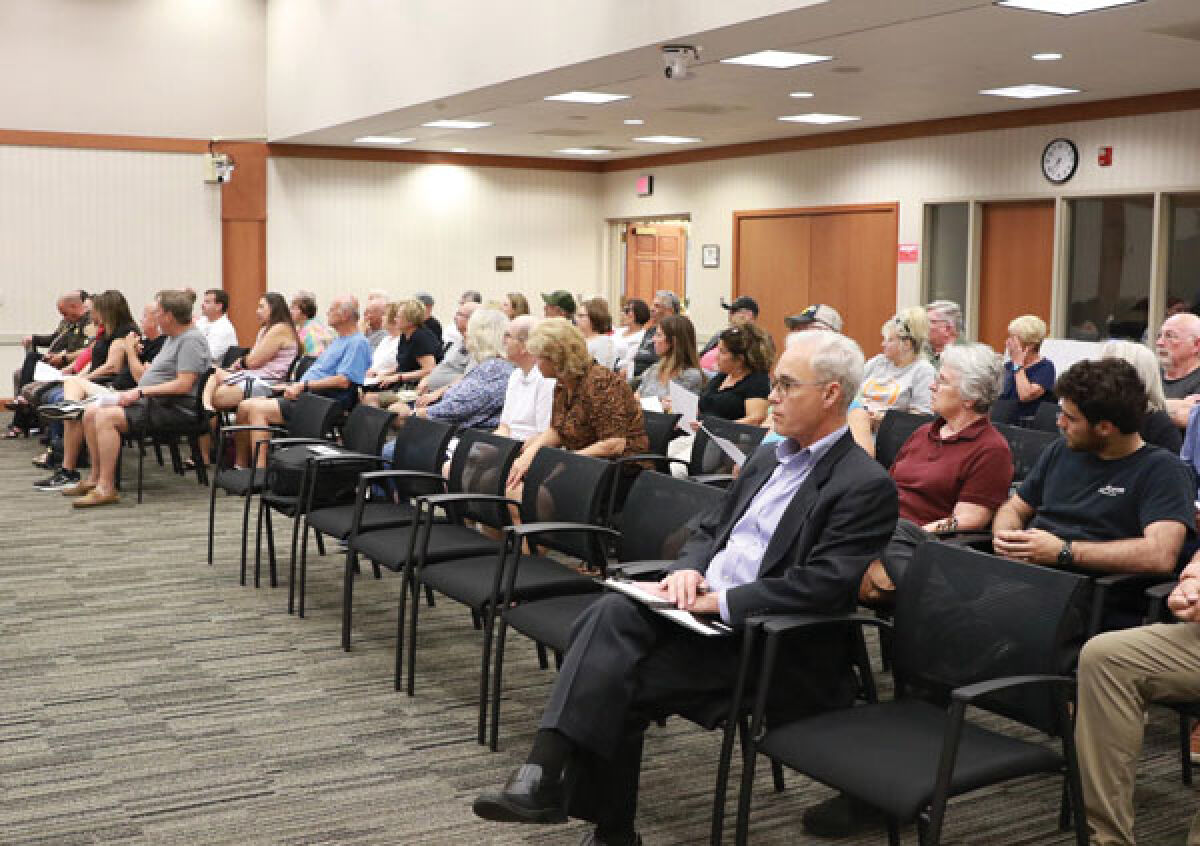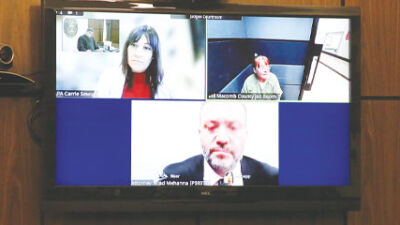MACOMB TOWNSHIP — There is a new approach to sound enforcement in Macomb Township.
On May 22, the Macomb Township Board of Trustees unanimously approved amendments to the township’s nuisance noise ordinance. The amendments reshape the township’s approach to noise enforcement as the ordinance’s subjective “disturbance of the peace” language is replaced by time, zoning and decibel-based standards.
“(The original ordinance is) very vague, and what we’ve found is in case law that many judges have indicated that it’s impossible to enforce because it would essentially leave judgment up to the enforcement officer or law officer who arrives on the scene to decide whether that is actually disturbing the peace or not,” Macomb Township Planning Director Josh Bocks said.
Residential noise standards in the ordinance are set at 60 decibels from 7 a.m. to 7 p.m., 55 decibels from 7 p.m. to 9 p.m. and 45 decibels from 9 p.m. to 7 a.m. Commercial zone, industrial zone and public parks are all set at 65 decibels from 7 a.m. to 9 p.m. and 45 decibels from 9 p.m. to 7 a.m. The ordinance states sounds are not to exceed the standards at “any point on the property adjacent or in close proximity to the unit or lot, parcel, or other property,” and that background noise will be taken into account when measured.
While noise affects everyone through bodily damage at high decibels, interest surrounding the ordinance was mostly driven by residents opposed to a YouTube video promoting a possible mosque and housing development in the northeast part of the township. While no official documentation has been submitted about the promoted project, some residents believe the ordinance would allow a mosque to broadcast five daily calls to prayer. Demands from these residents included rejecting the amendments and banning all forms of outdoor noise amplification in the township.
“Obviously, the proposed distance and sound level decibels is unacceptable,” resident Diana Hart said. “The only fair and equitable solution for everyone is to not allow outdoor speakers.”
Over the course of the meeting, trustees spoke with township officials, Macomb Township Attorney Benjamin Aloia, and Richard Carlisle, a senior principal with planning consulting firm Carlisle | Wortman Associates, to clarify aspects of the amendments and explain how it would be utilized in practice.
Macomb Township Trustee Peter Lucido III provided the most audience-oriented line of inquiry among the board members, using questions to Aloia to showcase how the ordinance would allow the township to regulate noise without risking a First Amendment lawsuit.
“I don’t know if we can stop them from doing a call to prayer — it’s a religious exercise on their property, and that would be unconstitutional — but what we’ve done here is whatever their religious exercise is, it has to be within the standards that are set across the board,” Aloia said.
Lucido addressed audience members opposed to the advertised development by stating that while he had seen the YouTube video, he would receive any remarks about the development once the developer submits documents to the township for official review.
“There is no proposed development at 25 (Mile Road) and Foss,” Lucido said. “There is no proposed development at 24 (Mile Road) and Foss. There is a YouTube video. We’re not making decisions — I’m not making decisions — on this board based on a YouTube video until I have something to discuss. Let’s do this one step at a time for what you all think is happening at 24 and Foss (and) 25 and Foss. Let something be proposed, then we can discuss it.”
A ban on noise amplification was dismissed after township officials discovered that churches already use it to make bells louder, a practice that would have ended under an amplifier ban. Bocks said the amplified church bell at 23 Mile and Romeo Plank roads measured “about 70 decibels” when measured from across the street, while the unamplified church bell at 21 Mile and Romeo Plank Roads measured in the mid-60s decibel range. Traffic noise on Romeo Plank Road was measured “at a louder decibel” than the church bell on 23 Mile.
While zoning dictates which noise standards a lot must adhere to, deviations can be pursued for special events or in cases where township authority is superseded by state or federal law. Special events can be pursued four times a year with examples from the board including Run the Plank and El Charro’s Cinco de Mayo celebration. All deviation requests must be submitted to the township, where they will be subject to a planning commission public hearing before final approval or denial from the Macomb Township Board of Trustees.
Specific scenarios brought up during the meeting include fireworks and amplifiers for a party DJ that could exceed the decibel limit. Standard-exceeding amplifiers would require a deviation or special event exception, while fireworks are governed by state law.
An earlier version of the amendments was introduced at the March 27 board meeting and tabled until the May 22 meeting to allow for revisions. Residents concerned about possible prayer calls were active at the March 27 meeting, while trustees noted deficiencies in the draft such as allowing no exceptions for emergency generator use. Township planners and Carlisle | Wortman had been working with the township since 2020 and approached the noise ordinance amendments using similar ordinances from Independence Township, Washington Township, Sterling Heights, Clinton Township, Shelby Township, New Baltimore and other municipalities inside and outside of Michigan as research.
“There was a lot of collaboration with the township attorney’s office (and) township staff,” Carlisle said. “There was quite a bit of input into this from the electeds also to provide us with feedback in terms of what made sense and what didn’t make sense. This wasn’t just a lone wolf type of (process,) and we never do that. We never write ordinances as, ‘Here’s what you have to pass.’ It’s always a collaborative effort.”
The noise ordinance amendments were introduced in March as part of a slate of ordinance revisions in the township. Approved ordinance revisions introduced alongside it include a temporary sign ordinance to resolve issues surrounding real estate developments and for sale/for rent signs, an ordinance to control the placement and maintenance of clothes donation bins and an ordinance to allow animal boarding facilities in light industrial zones. More revisions to the code of ordinances are expected throughout the year.
Trustee Frank Cusumano was the only trustee to indicate he would vote against the May 22 noise ordinance amendments. He said penalties for violating the ordinance were not mentioned in the ordinance. His support was gained through an amendment to include the penalties in the ordinance itself, even though it would already be subject to penalties listed in the code of ordinances under Section 1, Chapter 9.
 Publication select ▼
Publication select ▼



















